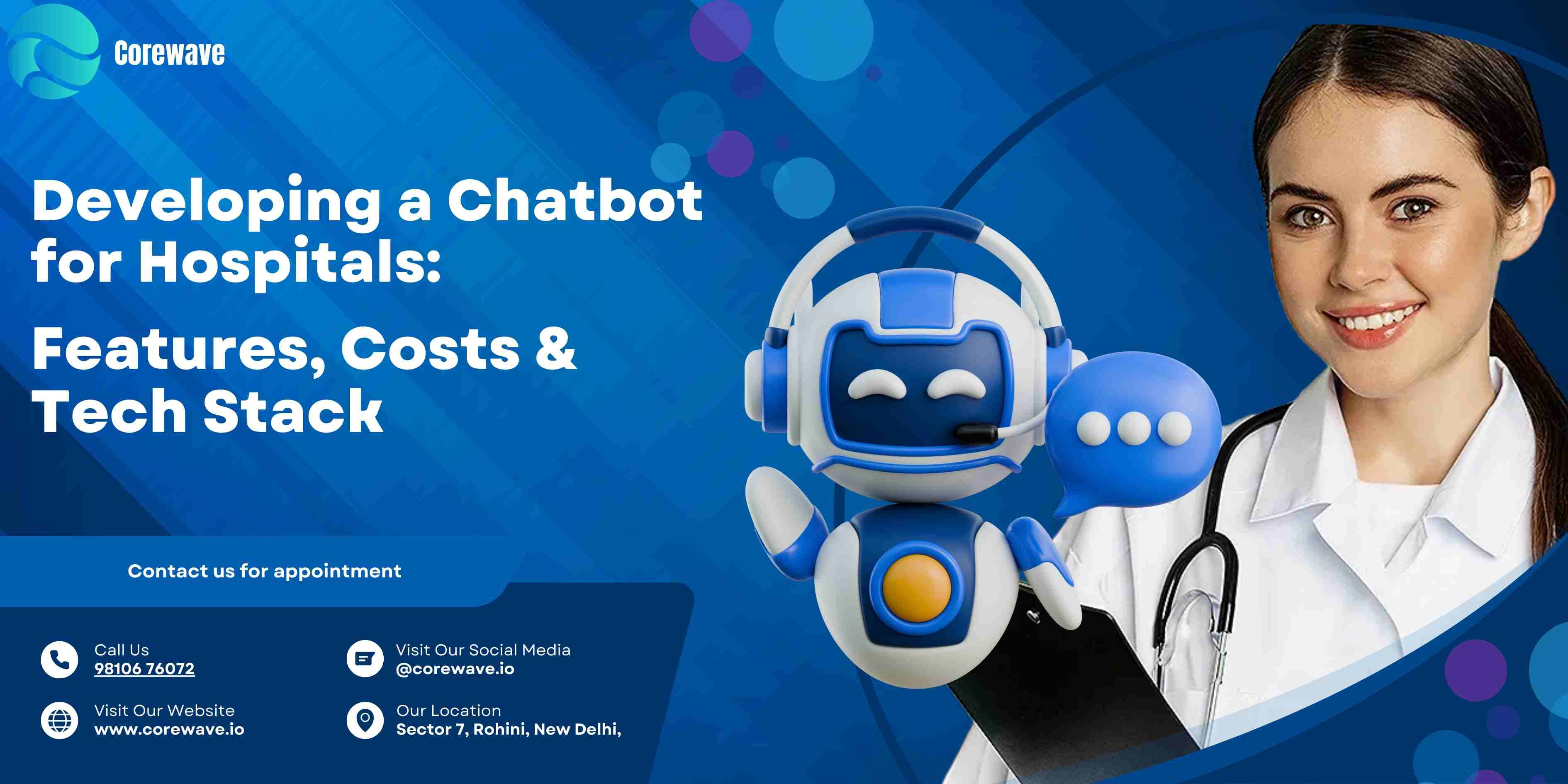First Timer’s Guide to Agile Mobile Development: Exploring the different phases of mobile app development
Learn moreSwipe to Check More

In todays healthcare digital ecosystem chatbots are revolutionizing how hospitals interact with patients, handle appointments, deal with queries and help streamline processes. AI-powered assistants arent only reducing time and cost but also improving patient satisfaction by offering 24/7 assistance. As the use of AI in healthcare, hospitals are quickly adopting chatbots as an integral part in their transformation plan.This article will cover all you must know about creating chatbots for hospitals, including the most important elements, cost estimation, and the perfect technology stack. The article will also explore the ways that chatbot development is creating the future of healthcare app development Company.
Healthcare facilities, particularly hospitals have many challenges, such as large volumes of patients administration burdens, staff shortages and a need to improve patient communication. Chatbots provide practical solutions to these issues through:
With healthcare AI getting more advanced, chatbots are now able to provide close-to-human interaction and customized experience for patients.
To create a reliable and useful chatbots for hospitals, certain crucial features are necessary:
Patients should be able make, cancel and change appointments using the chatbot. Integration with the scheduling system of the hospital is essential to provide real-time updates.
Utilizing Natural Language Processing (NLP) and AI algorithms, chatbots can assess symptoms of patients and suggest possible conditions, or recommend a physician.
A chatbot should be able to answer frequently asked questions regarding procedures, treatments, services or visiting hours.
The chatbot can be set up to remind users of the intake of medication, refills for prescriptions and health checks routinely.
To cater to a wide patient population, especially in multilingual societies the ability to adapt to different languages is essential.
The chatbot is able to help users figure out how to proceed in the case of medical emergencies. It can also help them connect to emergency assistance.
Feedback from patients helps hospitals enhance their services. Chatbots can alert visitors to complete quick surveys after their visit.
Secure integration secure integration Electronic Medical Records (EMR) or Electronic Health Records (EHR) lets the chatbot get patient information and offer specific suggestions.
Making sure that the chatbot is in compliance with the regulations like HIPAA (Health Insurance Portability and Accountability Act) is crucial to ensure the security of personal data of patients.
In the most complex situations the chatbot must be able transfer the conversation to an agent effortlessly.
Chatbot application development is rapidly becoming a key strategy within the current health care frameworks for app development.
The right technology stack is vital to the efficiency and growth that your bot can achieve. Here is a suggested stack:
The cost of developing chatbots in hospitals can vary greatly based on the features complexity, the technology used, and even the location of the team. This is a basic breakdown:
| Component | Estimated Cost (USD) |
| Requirement Analysis & Design UI/UX | $3,000 - $5,000 |
| Kern development (Front and Backend) | $10,000 - $25,000 |
| AI & NLP Integration | $5,000 - $15,000 |
| Integrations between EMR/EHR | $3,000 - $10,000 |
| Security & Compliance | $2,000 - $5,000 |
| Testing and Quality Assurance | $2,000 - $4,000 |
| Support and Deployment | $1,000 - $3,000 |
| Total Estimated Cost | $26,000 - $67,000 |
Be aware that prices can differ depending on the geographic location the vendors expertise and if youre creating a basic FAQ bot or an sophisticated AI-based assistant.
Artificial intelligences future in the field of healthcare is unquestionably positive. With the constant advancements in natural processing of language, machine learning and real-time analytics chatbots for hospitals are expected to:
Additionally, chatbot application advancement will impact general healthcare app development company trends which makes smart assistants an integral element in the majority of digital health apps.
Chatbots for hospitals isnt just an idea, its now a necessity in the world of healthcare that is increasingly technological. From reducing administrative burden to improving patient satisfaction, chatbots are revolutionizing the way hospitals run. Through the use of artificial intelligence in health care, hospitals can offer better patient care and increase the efficiency of their operations.
If youre thinking about chatbot app development as a part of your health-related strategy for app development, now is the moment to get started. By utilizing the appropriate features technology stack and a development team your hospital will be able to join the revolution in digital health and offer seamless, intelligent and efficient care.
Are you looking for help in creating a chatbot for your hospital? Our team is specialized in AI-driven solutions for healthcare that are tailored to meet your specific requirements. Contact us now to start!